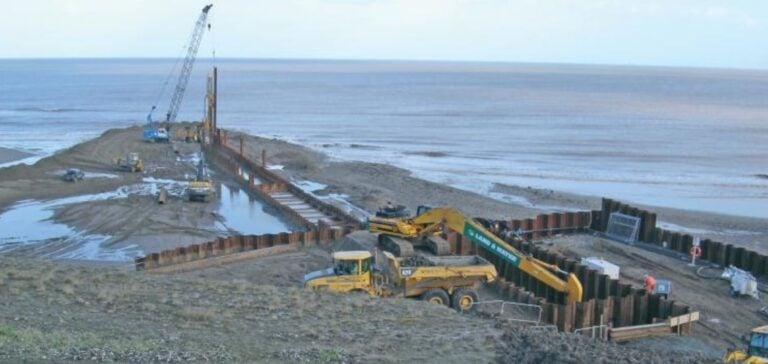Norway, now Europe’s main gas supplier after Russia, is speeding up the resumption of exports to Great Britain via the Langeled pipeline. Gassco, the Norwegian system operator, announced that available volumes will reach 45 million cubic meters (mcm) per day by Friday, exceeding the 35 mcm initially projected on Wednesday. This decision follows a blackout on Sunday that led to a significant rise in gas prices across Europe. Nyhamna, the gas processing plant for the Langeled pipeline, has a capacity of 79.8 mcm per day in full operation. The recent outage, caused by a crack in a two-inch pipeline on Equinor’s Sleipner Riser offshore platform, disrupted production and led to gas prices reaching 38.56 euros per megawatt-hour (MWh) on Monday, the highest level since December.
Overall impact on gas prices
The rapid increase in exports is intended to stabilize gas prices in Europe, currently at 33.5 euros per MWh, a slight rise of 0.4% on the previous day. The incident had global repercussions, driving up gas prices in the US and Asia due to concerns about remaining Russian gas supplies, and an Asian heat wave increasing competition for LNG. The United States, a major LNG exporter, has also felt the effects of this disruption, with increased demand for its exports driving up domestic gas prices. Norway’s resilience and speed of response are crucial to limiting long-term impacts on the global energy market.
Norway: Pillar of European Energy
In 2022, Norway surpassed Russia as Europe’s main gas supplier, supplying around a quarter of the continent’s demand. This strategic position makes any interruption in production a potential trigger for price rises. Norway’s ability to respond quickly and effectively to such disruptions is essential to the region’s energy stability. The recent blackout and Norway’s rapid response highlight the crucial importance of energy infrastructure and rapid response capabilities in ensuring a stable and reliable supply of natural gas. This situation also highlights Europe’s ongoing challenges to diversify its energy sources and strengthen the resilience of its energy network in the face of disruptions.
The development of Norway’s gas exports will continue to be a key indicator for global energy markets, influencing gas prices and availability not only in Europe, but also in other regions of the world.






















